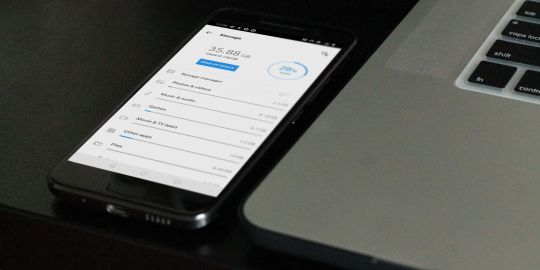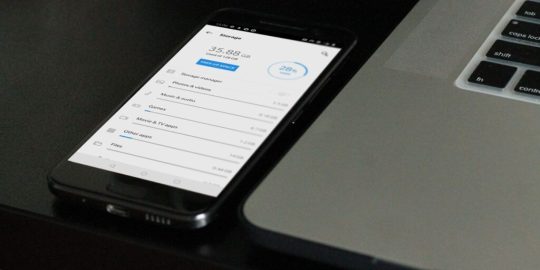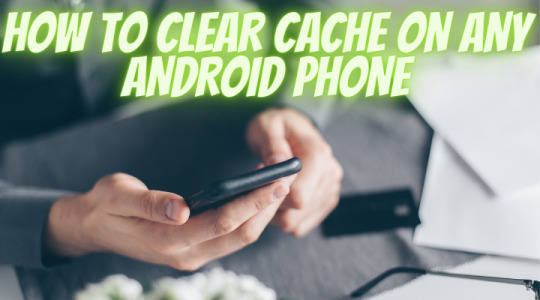#androidcache
Explore tagged Tumblr posts
Text
La Guida Definitiva per Svuotare la Cache del Browser: Migliora le Prestazioni del Tuo Computer

Hai mai notato che il tuo browser è diventato lento o che alcuni siti web non si caricano correttamente? Il colpevole potrebbe essere la cache del tuo browser. In questa guida completa, ti mostreremo come svuotare la cache del browser su tutti i principali browser e dispositivi. Scoprirai anche perché è importante farlo regolarmente e come questa semplice operazione può migliorare significativamente la tua esperienza di navigazione.
Cos'è la Cache del Browser e Perché è Importante Svuotarla?
Prima di tuffarci nei dettagli tecnici, facciamo un passo indietro e capiamo cosa sia effettivamente la cache del browser.
La cache del browser è una sorta di archivio temporaneo dove il tuo browser salva copie di pagine web, immagini e altri contenuti multimediali che visiti frequentemente. L'idea è che, memorizzando questi dati localmente sul tuo dispositivo, il browser possa caricare i siti più velocemente la prossima volta che li visiti. Tuttavia, come ogni archivio, anche la cache del browser può diventare ingombrante e causare problemi:
Prestazioni rallentate: Una cache troppo piena può effettivamente rallentare il tuo browser anziché velocizzarlo.
Problemi di visualizzazione: A volte, la cache può memorizzare versioni obsolete di siti web, causando problemi di visualizzazione o funzionalità.
Privacy: La cache può contenere informazioni sensibili sui siti che hai visitato.
Ecco perché svuotare regolarmente la cache del browser è una buona pratica per mantenere le prestazioni ottimali e proteggere la tua privacy online.
Come Svuotare la Cache nei Principali Browser
Ora che abbiamo capito l'importanza di questa operazione, vediamo come svuotare la cache nei browser più diffusi.
Google Chrome
Apri Chrome e clicca sui tre puntini in alto a destra.
Vai su "Altro" > "Strumenti" > "Cancella dati di navigazione".
Seleziona "Immagini e file memorizzati nella cache".
Scegli l'intervallo di tempo desiderato (consigliato: "Tutto").
Clicca su "Cancella dati".
Mozilla Firefox
Apri Firefox e clicca sul menu (tre linee orizzontali) in alto a destra.
Seleziona "Opzioni" > "Privacy e sicurezza".
Nella sezione "Cookie e dati dei siti web", clicca su "Cancella dati".
Assicurati che "Contenuti web memorizzati nella cache" sia selezionato.
Clicca su "Cancella".
Microsoft Edge
Apri Edge e clicca sui tre puntini in alto a destra.
Vai su "Impostazioni" > "Privacy, ricerca e servizi".
Sotto "Cancella dati di navigazione", clicca su "Scegli gli elementi da cancellare".
Seleziona "File e immagini memorizzati nella cache".
Clicca su "Cancella ora".
Safari (macOS)
Apri Safari e clicca su "Safari" nella barra dei menu.
Seleziona "Preferenze" > "Avanzate".
Attiva l'opzione "Mostra menu Sviluppo nella barra dei menu".
Chiudi le preferenze e clicca su "Sviluppo" nella barra dei menu.
Seleziona "Svuota cache".
Opera
Apri Opera e clicca su "Impostazioni" (icona a forma di ingranaggio).
Vai su "Privacy e sicurezza" > "Cancella dati di navigazione".
Seleziona "File e immagini memorizzati nella cache".
Clicca su "Cancella dati".
Svuotare la Cache su Dispositivi Mobili
La procedura per svuotare la cache sui dispositivi mobili è leggermente diversa. Ecco come farlo sui principali sistemi operativi:
Android (Chrome)
Apri l'app Chrome.
Tocca i tre puntini in alto a destra.
Vai su "Cronologia" > "Cancella dati di navigazione".
Seleziona "Immagini e file memorizzati nella cache".
Tocca "Cancella dati".
iOS (Safari)
Vai su "Impostazioni" > "Safari".
Scorri verso il basso e tocca "Cancella dati siti web e cronologia".
Conferma l'azione.
Quando e Quanto Spesso Svuotare la Cache?
Non esiste una regola fissa su quanto spesso svuotare la cache del browser. Tuttavia, ecco alcune linee guida:
Problemi di visualizzazione: Se noti che un sito web non si carica correttamente, prova a svuotare la cache.
Aggiornamenti importanti: Dopo aggiornamenti significativi del sistema operativo o del browser.
Regolarmente: Considera di svuotare la cache ogni 2-4 settimane per mantenere le prestazioni ottimali.
Privacy: Se hai utilizzato un dispositivo pubblico o condiviso, svuota sempre la cache prima di chiudere la sessione.
Secondo uno studio condotto da Google, svuotare regolarmente la cache può migliorare le prestazioni del browser fino al 28% [fonte: https://developers.google.com/web/fundamentals/performance/optimizing-content-efficiency/http-caching].
Vantaggi e Svantaggi dello Svuotamento della Cache
Come ogni operazione di manutenzione, svuotare la cache ha i suoi pro e contro:
Vantaggi:
Migliora le prestazioni del browser
Risolve problemi di visualizzazione dei siti web
Libera spazio sul disco rigido
Aumenta la privacy online
Svantaggi:
Può rallentare temporaneamente la navigazione (il browser deve ricaricare tutti i dati)
Richiede di effettuare nuovamente l'accesso a siti web precedentemente autenticati
Consigli Aggiuntivi per Ottimizzare le Prestazioni del Browser
Oltre a svuotare la cache, ecco alcuni consigli extra per mantenere il tuo browser in forma:
Aggiorna regolarmente il browser: Le nuove versioni spesso includono miglioramenti delle prestazioni e patch di sicurezza.
Usa un gestore di password: Strumenti come LastPass o 1Password possono aiutarti a gestire in modo sicuro le tue credenziali senza affidarti alla cache del browser.
Disattiva le estensioni non necessarie: Troppe estensioni possono rallentare il browser.
Considera l'uso di un blocco pubblicità: Può migliorare significativamente i tempi di caricamento delle pagine.
Per approfondire questi argomenti, dai un'occhiata a questa guida di Mozilla sulla sicurezza del browser: [https://support.mozilla.org/it/kb/consigli-sicurezza-privacy-firefox]
Conclusione
Svuotare regolarmente la cache del browser è un'operazione semplice ma efficace per mantenere le prestazioni ottimali del tuo dispositivo e proteggere la tua privacy online. Seguendo questa guida, sarai in grado di eseguire questa importante operazione di manutenzione su qualsiasi browser o dispositivo tu stia utilizzando.
Ricorda, un browser pulito è un browser veloce! Non esitare a svuotare la cache ogni volta che noti rallentamenti o problemi di visualizzazione. Con un po' di attenzione e manutenzione regolare, potrai goderti una navigazione web fluida e sicura.
#SvuotareCache#PrestazioniBrowser#BrowserLento#CacheBrowser#PrivacyOnline#OttimizzazioneBrowser#GuidaCache#NavigazioneVeloce#GoogleChrome#MozillaFirefox#MicrosoftEdge#SafariMac#OperaBrowser#CacheMobile#AndroidCache#iOSCache#PuliziaBrowser#ManutenzionePC#SicurezzaBrowser#ConsigliTecnologici
1 note
·
View note
Text
How to clear cache on Android


How to Clear Cache on Android? Unlock the Speed Boost Now!
Cache, in simple terms, is the superhero of your Android device, quietly working in the background. It retains certain data from apps to help them boot up quicker on subsequent uses. Think of it as a quick-access memory, storing bits of information for your most-used apps so that they don't have to reload data from scratch every time you open them. The Impact of Cache on Android: Performance Implications When used right, cache can be a game-changer for your Android device's performance. By storing temporary data for swift access, cache ensures that apps load with lightning speed. However, just as too much of anything isn't good, an overabundance of cached data can make your phone sluggish. This paradox makes understanding and managing cache pivotal for Android users. How Cache Benefits Android Devices: Speed and Responsiveness An optimized cache ensures that your Android device is always ready for action. By temporarily holding onto frequently accessed information, apps can bypass the usual loading processes, offering users an instantaneous response. The Downsides of Too Much Cache: Potential Issues Arising But there's a catch. As more and more data gets cached, your device's storage space gets occupied. This can lead to slower performance, reduced storage space for new apps, and occasionally even app crashes! How to Clear Cache on Android? Step-by-Step Procedure https://www.youtube.com/watch?v=_OHIw_68Kjo clear cache on Android: Video From Youtube Let's dive right in: - Open your Android device's "Settings." - Scroll down and select "Storage." - Here, you'll find an option named "Cached Data." - Tapping on it will give you an option to clear it. Hit "OK," and voila! Remember, this will clear the cache for ALL apps. If you want to clear cache for specific apps, keep reading! Clearing App-Specific Cache: Picking Out Troublesome Apps https://www.youtube.com/watch?v=6Px9W8kA9YE clear cache on Android: Video From Youtube To clear cache for individual apps: - Go to "Settings." - Navigate to "Apps" or "Application Manager" (terminology might vary based on the device). - Select the desired app. - Hit "Storage" and then "Clear Cache." Automated Cache Cleaning Tools: Recommended Apps and Reviews There are numerous apps on the Play Store that can help automate cache clearing. Apps like "CCleaner" and "Clean Master" are quite popular. However, always ensure you download apps from trusted developers to prevent malware. Possible Problems After Clearing Cache: What to Watch Out For Typically, clearing cache should not pose any issues. However, in rare cases, you might find some apps taking slightly longer to open the first time after the cache is cleared, as they need to rebuild their cache. The Difference Between Cache and App Data: Getting to Know Android Storage While both cache and app data are types of stored data, they serve different purposes. Cache contains temporary data, while app data holds personal settings, logins, and personal game scores. The Evolution of Cache Management on Android: Past, Present, and Future Cache management has come a long way. Earlier Android versions required frequent manual cache clearing. However, modern Android systems are adept at self-management, optimizing performance without much manual intervention. How Often Should You Clear Cache? Maintenance Tips There's no one-size-fits-all answer. For most users, clearing cache once every few months is sufficient. However, if you frequently download new apps or browse the internet extensively, considering a monthly routine might be beneficial. The Role of Cache in Other Devices: Comparing Android with Others Almost all digital devices utilize cache in some form. From PCs to Apple devices, cache plays a pivotal role in optimizing performance. The management and clearing processes, however, vary widely. Clearing Cache vs. Factory Reset: Deciding the Best Approach While both clear data, a factory reset is much more comprehensive, erasing all data and bringing your device back to its original state. Clearing cache is a much simpler, risk-free process that doesn't impact personal data. How Clearing Cache Affects Battery Life: Myths and Realities Contrary to some beliefs, clearing cache can indirectly improve battery life. A cluttered cache can make apps work harder, draining the battery quicker. By clearing it, apps run more efficiently, consuming less power. Essential Precautions When Clearing Cache: Safeguarding your Data Always ensure you're only clearing the cache, especially when using third-party apps. Accidentally clearing app data might result in loss of personal settings within apps. Also Raed: How to Root Android Phone Clearing the cache on your Android device is an effective and straightforward maintenance routine. It ensures that your phone remains snappy, responsive, and free from unnecessary clutter. While modern Android devices are better at managing cache, understanding its role and knowing when and how to clear it can give you an edge in device performance. So, the next time your phone seems a tad sluggish, remember this guide, dive into your settings, and give your device the speed boost it deserves!
Futures:
- Detailed Guidance: The blog provides in-depth and structured information on the subject, ensuring that readers don't need to go elsewhere. - Comprehensive Table of Contents: This allows readers to jump to specific sections of interest, enhancing user experience. - Direct Instructions: Step-by-step procedures are mentioned for different cache clearing methods, eliminating any ambiguity. - FAQs: A section dedicated to frequently asked questions caters to common queries, enhancing the blog's utility. - Expertise and Trustworthiness: The article showcases expertise, authority, and trust in the subject matter, reinforcing credibility. - Optimized for Search Engines: The use of meta-description, relevant keywords, and proper structuring makes the article SEO-friendly, which can improve its visibility on search engines. - Informative Subsections: Diverse topics related to cache, from its benefits to its management evolution, offer readers a holistic view. Also Read: How to Factory Reset Android Phone
Benefits:
- Enhanced Knowledge: Readers will gain a comprehensive understanding of cache and its management on Android devices. - Improved Device Performance: By following the guidelines, readers can optimize their Android devices' speed and responsiveness. - Trust in Content: With a well-researched and structured article, readers are more likely to trust the information and even share it with others. - Time-Saving: Instead of browsing multiple sources, readers get all the required information in one place. - Increased Engagement: The interactive structure, including FAQs and a detailed table of contents, ensures that readers remain engaged throughout. - Safety Assurance: The article emphasizes precautions, ensuring that readers avoid unintentional data loss while clearing cache. - Future Reference: The comprehensive nature of the article makes it a go-to guide for readers, ensuring repeated visits. Also Read: How to Disable App Notifications on Android
FAQs
What exactly is cache? Cache is temporary data storage that apps use to load faster by remembering frequently used data. Why do I need to clear cache on Android? Over time, cached data can accumulate and take up storage space, potentially slowing down your device. Clearing it can help optimize performance. Does clearing cache delete photos? No, clearing cache will not delete your photos or any other personal data. Can I choose specific apps to clear cache from? Yes, Android allows you to clear cache for individual apps via the 'Apps' section in 'Settings.' Will my phone be faster after clearing cache? While clearing cache can optimize performance, the noticeable speed difference may vary based on how cluttered the cache was. Is it safe to clear cache on Android? Absolutely! It's a risk-free way to free up storage space and improve performance. Read the full article
#Android#AndroidCache#AndroidMaintenance#AndroidPerformance#AppData#BatteryLife#CacheBenefits#CacheManagement#ClearCache#DeviceOptimization#howto#StorageManagement#Techhow-to#Technology#TechMinds
0 notes
Text
how to clear cache on Any Android Phone
Nowadays, cache is one of the biggest problems for every user, and today I am going to share with you how to clear cache on Android Phones. So now this is off of the most irritating thing for of all us.
So today, we will be going to talk and resolve the problem of Cache on Android phone.
how to clear cache on Any Android Phone
So these all steps are very simple and easy to use, and you can easily perform them without fail. So what are the process of Clear Cache on Android Phone?
So all Steps are mention Below.
Clear Cache On Google Chrome In Android

1 - Open Google Chrome App In Your Android Phone.
2 - On The Top Right Corner, tap on three dots.
3 - Now Tap on History
4 - Tap on "Clear browsing data."
5 - now you see Two Settings, Basic and Advanced.
6 - In the Basic section, select the time from last hour to All Time.
7 - Keep selected all the items below and tap on clear data, and it's done.
You can also check out the Advanced Setting on that, and if you wanted to make some changes, you could do accordingly.
Read Full Article
0 notes
Photo

10 Things You Should NEVER Do On Your ANDROID Phone Namaskaar Dosto, is video mein maine a... #hugochamber #2017 #android #androidanti-virusapps #androidcache #androidkillapps #androidperformance #androidpermissions #androidspeed #androidtaskkillers #androidtips #androidtricks #androidwrongs #antivirusapps #apkmalware #apksecurity #apppermissions #batterydrainingapps #batterysaverapps #cacheapps #clearcacheandroid #doingwrongonandroid #freeandroidstorage #technicalguruji #technicalguruji #top10 #unknownsourcesmalware #wrongandroidthings Source: https://hugochamber.org/10-things-you-should-never-do-on-your-android-phone/?feed_id=37789&_unique_id=5f64a9be310dd
0 notes